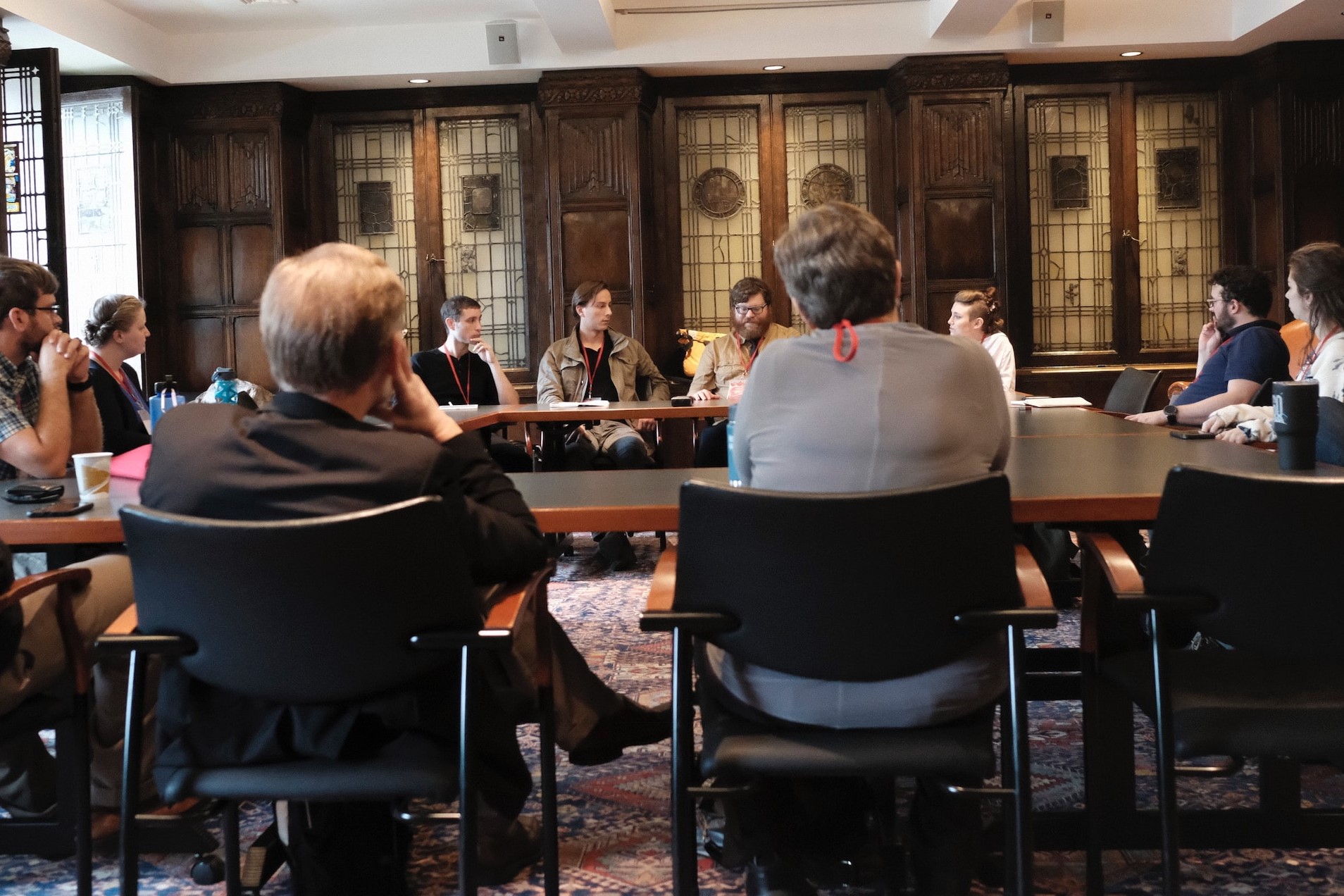We had the pleasure of being invited to participate and present at Harvard Divinity School's Sound Education Conference over the weekend. We met and heard from some great podcasters, historians, and academics. I learned a ton, and appreciate having the opportunity, but there were also parts of our experience that left David and I disturbed and disappointed. This feeling arose from the extent the conference played to our culture of celebrating expertise, and intellectual and material success without questioning underlying worldviews and ideologies.

To be clear, there is nothing wrong with celebrating someone's genuine intellectual success, or specific contribution to society, but when we translate these specific contributions into support for some broader and vaguer mission like political leadership, we risk missing the crucial point that skill, expertise, connections, passion, charisma, etc. are not the forces that shape society. It is ideology.
And the way we celebrate people in this superficial way falls under a broader trend in our culture of pursuing unbiased, objective, and neutral fact. The so called two sides of every story. But it doesn't exist. There is no unbiased position. A few weeks ago we interviewed Bernie Krause on soundscape ecology, and even a field as objective as recording nature is not without bias. Krause has said elsewhere that a final recording of nature is always preceded by a series of editorial decisions and edits. In his case, it's the type of microphone he chooses; the exact spot his microphone is placed; the time of day he records; and the trimming down of raw recording into a final track. Our media environment does the same thing. Each time information is presented to us, that which made it in to the final presentation, and more importantly, that which is left out, supports and defends the worldview of the presenter:
- when NPR runs a story describing the weird social quirks people in an African country have to face in order to conform to Western models of public education, it is the absence of questions analyzing the systemic roots that imposed this model in the first place which implicitly supports and defends a worldview in favor of (in part) global fictionalization and the exportation of Western imperialism
- when Tim Ferriss et al. present so called Titans of Industry to illuminate the tips and tricks that separate these titans from us mortals, the very fact that Tim does not question the morality of how this wealth and power is acquired in the first place supports and defends his worldview on how economies should be structured, which directly impacts the lives of workers.
- when we respond to Neil Degrasse Tyson's brilliant description of black holes, by chanting "Neil Degrasse Tyson for President," we have confused charisma for leadership.
Throughout or world today, communities are being diluted and destroyed. Individuals are atomized. Depression, mental health issues, and chronic illness are all record high. Wages have fallen, consumer debt has exploded. 60% of all Americans could not bear a $1,000 surprise emergency bill. People feel the blunt impact of these trends, but it is not because we as individuals have failed. We must recognize that undergirding all these changes are ideology-supported policies. Real, tangible, policies. But if we never question the underlying worldviews that lead to those policies, and start supporting ones that will make a positive difference in our lives, we will always be at the mercy of someone else's agenda.
~ Daniel
November 7, 2018